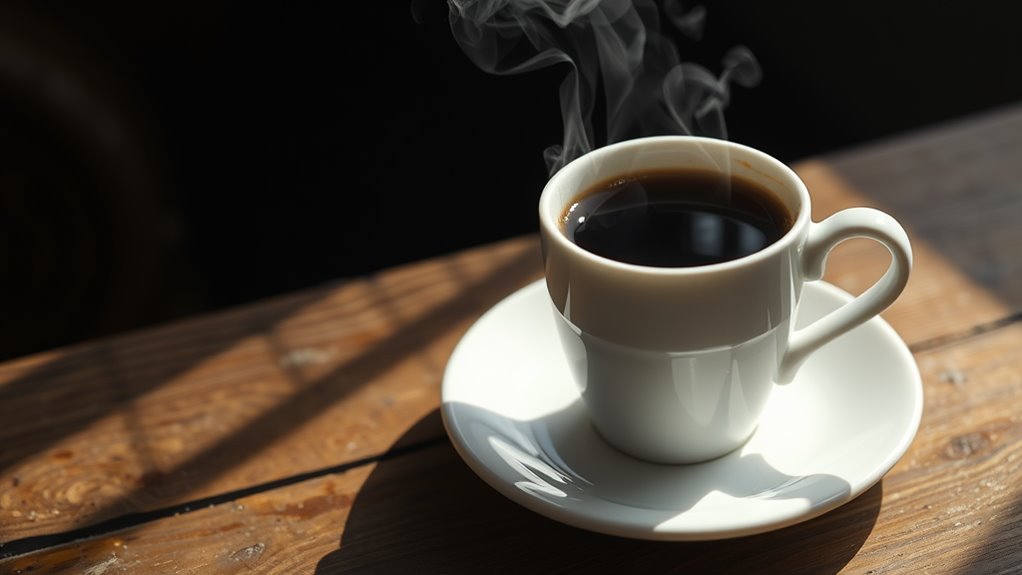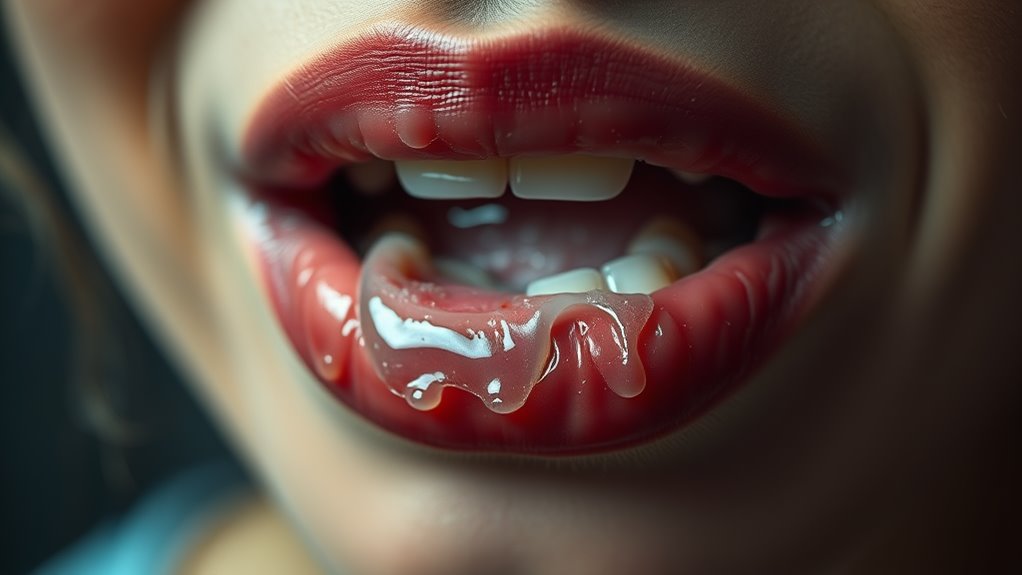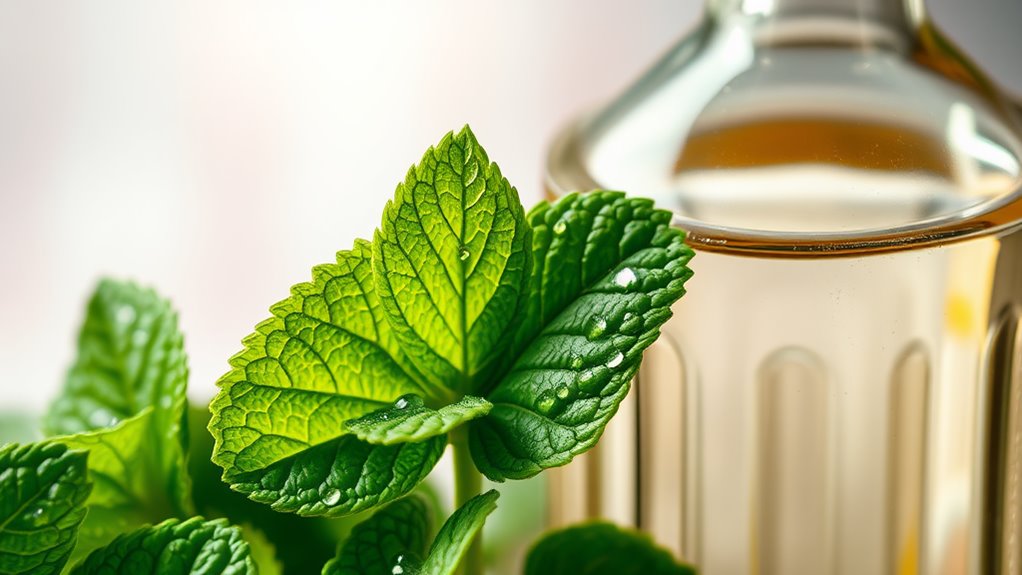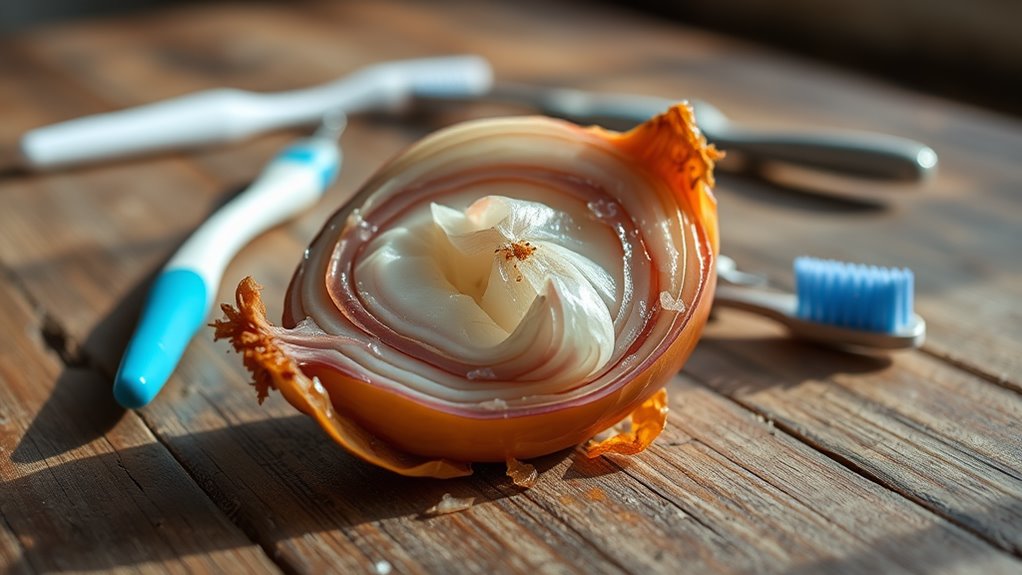This One Drink Could Be Giving You Chronic Bad Breath!
Your daily coffee habit could be secretly sabotaging your fresh breath. Coffee reduces saliva production, creating the perfect environment for odor-causing bacteria to thrive. The acidic compounds stick to your tongue and throat, while adding milk or cream can make the problem worse. When combined with dehydration, these factors lead to persistent bad breath throughout the day. Discover how simple changes to your drinking habits can transform your oral freshness.
The Hidden Culprit: Coffee and Your Breath
Although coffee is a beloved morning ritual for millions, it’s one of the leading causes of bad breath throughout the day. When you drink coffee, you’re creating the perfect environment for bacteria to thrive in your mouth.
The caffeine reduces saliva production, leading to a dry mouth where odor-causing bacteria multiply rapidly. Coffee’s strong compounds stick to your tongue and the back of your throat, creating a lingering smell that’s difficult to mask.
The acids in coffee also break down tooth enamel, allowing bacteria to settle into microscopic crevices. Even if you brush your teeth right after your morning cup, you’ll likely still experience coffee breath later.
Adding milk or cream can make the situation worse, as dairy proteins combine with coffee’s compounds to intensify the odor.
How Dehydration Affects Oral Health
Beyond coffee’s direct effects on your breath, staying hydrated plays a key role in maintaining fresh breath and overall oral health. When you’re dehydrated, your body produces less saliva, which naturally cleanses your mouth of bacteria and food particles. Without adequate saliva, bacteria thrive and multiply, leading to bad breath.
You’ll notice other signs of dehydration in your mouth too. Your tongue may feel sticky, and you might experience a dry, uncomfortable sensation. This parched environment creates perfect conditions for anaerobic bacteria to flourish, producing volatile sulfur compounds that cause bad breath.
To prevent this, make sure you’re drinking enough water throughout the day, especially after consuming coffee. Your saliva flow will remain steady, helping to wash away odor-causing bacteria and maintain oral freshness.
The Science Behind Drink-Related Bad Breath
When certain drinks interact with your mouth’s chemistry, they trigger reactions that lead to unpleasant breath. The sulfur-producing bacteria in your mouth thrive on sugar and protein residues left behind by beverages, creating volatile sulfur compounds that cause bad odors.
Some drinks also temporarily alter your mouth’s pH level, creating an environment where odor-causing bacteria multiply rapidly.
Coffee and alcohol are prime culprits because they reduce saliva production, allowing bacteria to flourish unchecked. These drinks also contain tannins and other compounds that stick to your tongue’s surface, creating a coating that traps food particles and bacteria.
Additionally, milk proteins can break down into amino acids that bacteria convert into smelly sulfur compounds, while acidic drinks can erode enamel and expose microscopic areas where bacteria hide.
Signs Your Beverage Choice Is Causing Halitosis
Understanding whether your drink choices are causing bad breath starts with recognizing specific warning signs. If you notice a sour or metallic taste lingering in your mouth after drinking, that’s a key indicator. Your tongue may also develop a white or yellowish coating, especially toward the back.
Pay attention to timing – if your breath worsens immediately after consuming certain beverages, they’re likely the culprit. You might also experience increased thirst or dry mouth, as many breath-affecting drinks can dehydrate you.
Watch for reactions from others, like subtle stepping back during conversations after you’ve had your usual morning coffee or afternoon soda. Your dental hygiene routine may also become less effective, with bad breath returning quickly even after brushing.
Natural Ways to Combat Drink-Induced Bad Breath
Since certain drinks can trigger bad breath, you’ll be glad to know there are several natural remedies to freshen your breath quickly.
Whether you’ve just finished your morning coffee or had a sugary soda, these solutions can help neutralize unpleasant odors and restore fresh breath naturally.
-
Chew fresh herbs like parsley, mint, or cilantro after drinking – these plants contain natural compounds that fight bacteria and mask odors.
-
Rinse your mouth with water mixed with a teaspoon of apple cider vinegar to restore proper pH balance and kill harmful bacteria.
-
Munch on crunchy fruits and vegetables like apples, carrots, or celery, which help remove drink residue while stimulating saliva production.
These natural remedies work quickly and don’t require special products or preparations.
Smart Drinking Habits for Better Oral Hygiene
By making smart choices about how you consume beverages, you can significantly reduce their impact on your breath and oral health.
Sip drinks through a straw to minimize contact with your teeth and tongue, especially with acidic or sugary beverages.
Don’t swish drinks around in your mouth, as this increases exposure to harmful compounds that cause bad breath.
Time your drinks wisely – avoid consuming strong-smelling beverages before important meetings or social events.
When you’re drinking alcohol or coffee, alternate with water to rinse away residue and maintain proper hydration.
Don’t let beverages linger in your mouth; swallow promptly to prevent bacteria growth.
If possible, brush your teeth or rinse with water 30 minutes after consuming drinks known to cause bad breath.




